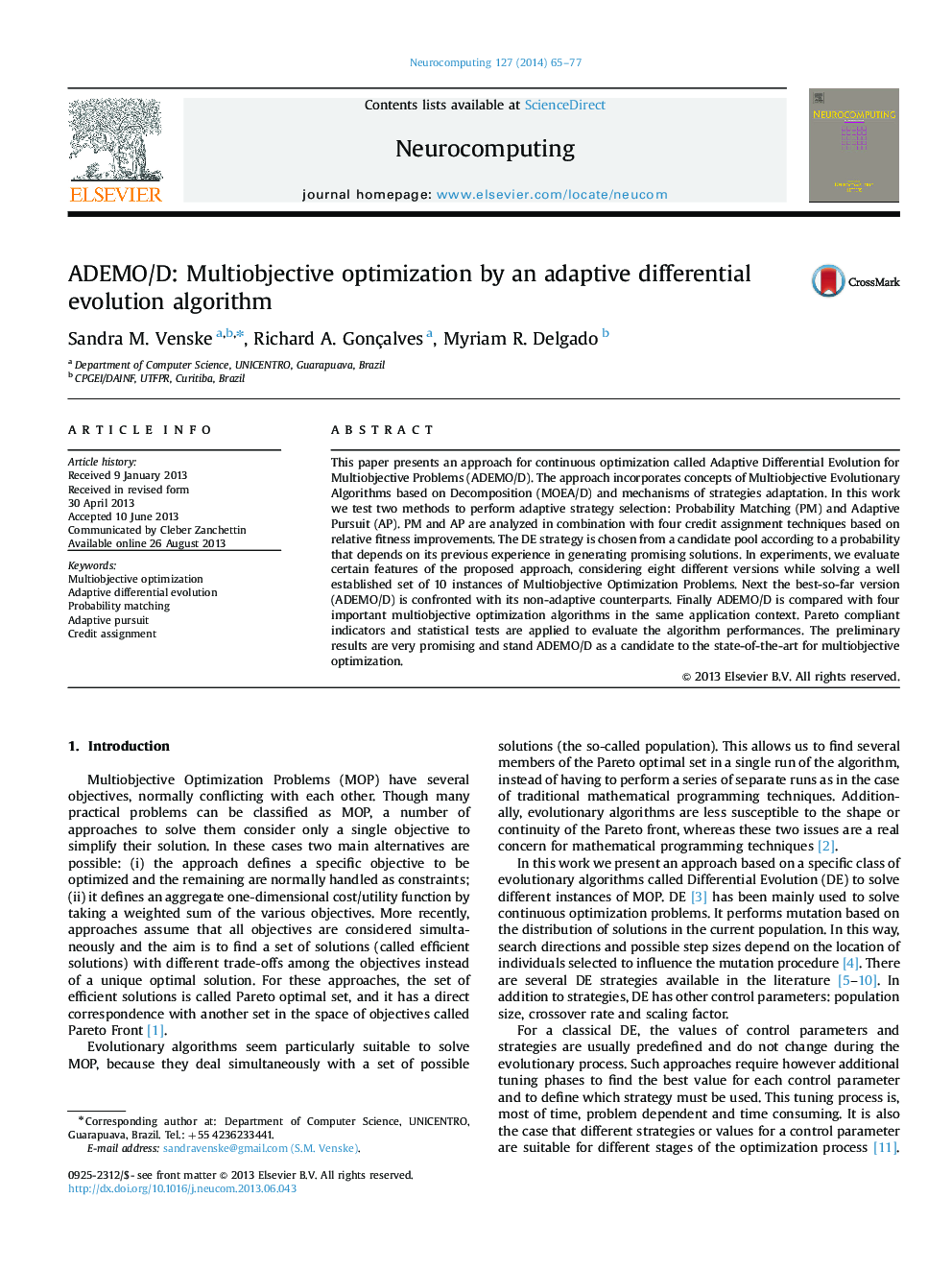| Article ID | Journal | Published Year | Pages | File Type |
|---|---|---|---|---|
| 409187 | Neurocomputing | 2014 | 13 Pages |
•An approach for continuous multiobjective optimization is presented in this paper.•It incorporates concepts of multiobjective evolutionary algorithms based on decomposition and mechanisms of mutation strategies adaptation.•Two methods for adaptive strategy selection are analyzed in combination with four credit assignment techniques based on relative fitness improvements.•Different versions of the proposed approach are compared and the best-so-far version is confronted with methods of state-of-the-art.•The effectiveness of the proposed approach is demonstrated on 10 instances of a multiobjective optimization benchmark.
This paper presents an approach for continuous optimization called Adaptive Differential Evolution for Multiobjective Problems (ADEMO/D). The approach incorporates concepts of Multiobjective Evolutionary Algorithms based on Decomposition (MOEA/D) and mechanisms of strategies adaptation. In this work we test two methods to perform adaptive strategy selection: Probability Matching (PM) and Adaptive Pursuit (AP). PM and AP are analyzed in combination with four credit assignment techniques based on relative fitness improvements. The DE strategy is chosen from a candidate pool according to a probability that depends on its previous experience in generating promising solutions. In experiments, we evaluate certain features of the proposed approach, considering eight different versions while solving a well established set of 10 instances of Multiobjective Optimization Problems. Next the best-so-far version (ADEMO/D) is confronted with its non-adaptive counterparts. Finally ADEMO/D is compared with four important multiobjective optimization algorithms in the same application context. Pareto compliant indicators and statistical tests are applied to evaluate the algorithm performances. The preliminary results are very promising and stand ADEMO/D as a candidate to the state-of-the-art for multiobjective optimization.
